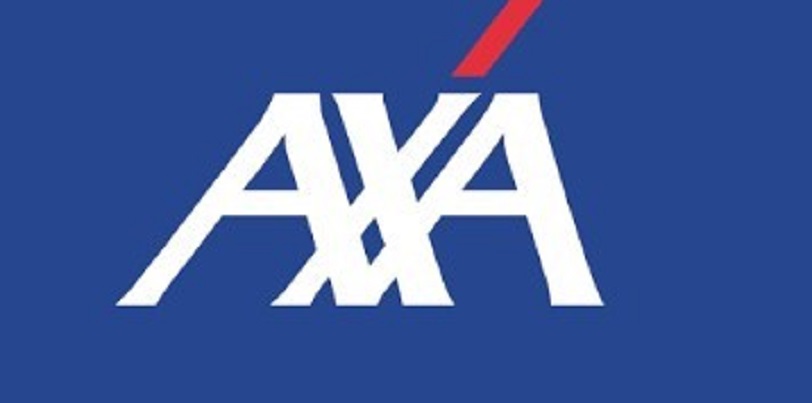Health
Nigeria’s Havenhill, Others Get $2.6m to Power Rural Healthcare Facilities

By Adedapo Adesanya
Nigeria’s Havenhill Synergy Limited has received a grant to electrify 21 rural healthcare facilities in Oyo State using an energy-as-a-service business model. The facilities are mostly within peri-urban communities with limited reliable electricity access.
Havenhill, through this, will provide long-term operation and maintenance of the solar energy systems.
The solar energy company and eight others were chosen to receive a $2.6 million grant through the United States Agency for International Development (USAID) to provide reliable, affordable off-grid electricity to nearly 300 healthcare facilities in Sub-Saharan African countries.
Known as Power Africa, the grant aims to enable the delivery of continuous health care services by making available energy that is critical for powering essential devices, medical and sterilization equipment, diagnostics, cold storage for vaccines and medication, information technology, and lights.
Data has shown that nearly 60 per cent of all healthcare facilities in sub-Saharan Africa have no access to electricity, and of those that do, only 34 per cent of hospitals and 28 per cent of health clinics have reliable, 24-hour access.
So, in support of the accelerated provision of off-grid solar energy to healthcare facilities in sub-Saharan Africa, Power Africa has awarded grants to the following solar energy companies: Havenhill Synergy Limited (Nigeria); KYA-Energy Group (Togo); Muhanya Solar Limited (Zambia); Nanoé (Madagascar); OffGridBox (Rwanda); OnePower (Lesotho); PEG Solar (Ghana); SolarWorks! (Mozambique); and Zuwa Energy (Malawi).
These companies will utilize Power Africa funding to provide off-grid solar electricity solutions to 288 healthcare facilities across the nine countries represented.
According to Mr Mark Carrato, Power Africa Acting Coordinator: “Solar energy holds great potential to expand and improve health care delivery in sub-Saharan Africa, and off-grid solar technology offers a clean, affordable, and smart solution to electrify healthcare facilities located beyond the reach of national electricity grids.
“Power Africa’s experience shows that off-grid solar energy systems can be rapidly deployed to even the most rural facilities.”
On the part of USAID, its counsellor, Mr Chris Milligan said: “These awards demonstrate what we can accomplish when the public and private sectors join together to break down the barriers to reliable electricity for rural healthcare facilities.”
Other projects will see KYA-Energy Group electrifying 20 health centres in Togo and provide automated solar hand washing stations for infection prevention and solar phone charging stations for generating additional income.
In partnership with the Churches Health Association of Zambia, Muhanya Solar will provide electricity access to seven rural health facilities in Zambia and will also electrify staff housing to generate revenue for the operation and maintenance of the solar systems installed at the health facilities.
Nanoé will electrify 35 rural health facilities in the Ambanja and Ambilobe districts of Madagascar. The company will deploy nano-grids with the health facilities as anchors and connections running to staff housing. Electricity will be sold to the surrounding communities to generate income for the operation and maintenance of the nano-grids.
With their containerized solution, OffGridBox will provide renewable energy and clean water to six rural clinics in Rwanda. The company will also set up a pay-as-you-go (PAYGO) business model, selling electricity and clean water to the surrounding communities.
OnePower will electrify seven rural health facilities in Lesotho, using the facilities as anchor loads for mini-grids. In addition to powering the health facilities, the mini-grids will provide electricity access for rural communities served by the facilities.
PEG Solar will provide electricity access to 91 rural community healthcare facilities in Ghana. It will adopt a private-sector approach to energy service delivery for public health facilities, enabling rapid electrification of the facilities while significantly reducing the upfront financial burden of transitioning to solar energy.
SolarWorks! will electrify 92 rural healthcare facilities in Mozambique’s Sofala province. To ensure the sustainability of the systems beyond the grant implementation period, SolarWorks! will cover operational and maintenance costs of the solar energy systems for five years.
Zuwa Energy will install solar energy solutions in nine health facilities in Malawi. Electricity access will enable the facilities to provide higher-quality health services throughout the day and more comprehensive services at night. Additionally, it will electrify staff housing with the aim to increase staff wellbeing and retention rates.
Health
SpecSMART Eye Clinic Takes Affordable, Quality Care to Ikeja, Environs

By Modupe Gbadeyanka
The dream of residents of Ikeja and its environs enjoying affordable and quality care has now become a reality as a result of the opening of a new branch of SpecSMART Eye Clinic in the Opebi area of the capital of Lagos State.
SpecSMART Eye Clinic, a leading provider of optometry services in Lagos, commenced operations in Nigeria’s commercial capital in 2022.
Since then, it has been offering top-notch eye care to residents of the metropolis, especially those living on the Island. It has built a strong reputation for delivering high-quality primary eye care and optical products.
However, to extend its services to Lagosians living on the Mainland, it has now opened a new branch in Ikeja, reinforcing its commitment to providing accessible, affordable eye care to a wider community.
Business Post gathered that the clinic’s state-of-the-art services are supported by a team of skilled optometrists and opticians, utilizing cutting-edge digital equipment.
The new Ikeja location will offer a wide range of services, including Automated Eye Examinations using advanced digital equipment for precise diagnosis and personalized care.
In addition, clients will enjoy on-the-spot lens glazing for single vision, bifocals, and varifocals, with additional lens coatings, with services to be rendered seven days a week from 9 am to 9 pm on Mondays to Saturdays, and on Sundays and public holidays from 10 am 7 pm.
Also, the clinic has over 950 frames, ranging from affordable home brands to premium designer options, priced from N18,000, and has flexible appointment scheduling with 24-hour online booking via SpecSMART’s website.
The facility has partnerships with leading HMO providers in the country and offers glaucoma management and other essential eye health services.
According to the company, its introductory packages start from N30,000 and include consultation, frame, and single-vision lenses.
“With the opening of our Ikeja branch, we are ready to serve more individuals who need accessible, cost-effective, and reliable eye care.
“Our aim is to create a positive impact in Nigeria’s optometry sector by combining advanced technology with a patient-centred approach,” the Practice Head and Medical Director of SpecSMART, Dr Adaeze Nwoko, stated.

Health
FG Begins Vaccination Against Mpox in FCT, Six States

By Adedapo Adesanya
The Federal Ministry of Health and Social Welfare through the National Primary Health Care Development Agency (NPHCDA) has commenced the vaccination against Monkeypox, now known as Mpox.
Business Post reports that Bayelsa, Rivers, Cross River, Akwa Ibom, Enugu, Benue, and the Federal Capital Territory, were selected as pilot states for the vaccination.
An average of 631 persons are expected to be vaccinated across the seven states with two doses of the Mpox vaccine. A buffer for 50 persons will be kept at the national in case of an upsurge in other states.
NPHCDA in a statement posted on its verified X account confirmed the exercise, stressing that the vaccination will help to protect communities and safeguarding health of the people.
In a related development, according to the latest update by the Nigeria Centre for Disease Control (NCDC), there are 1,442 suspected cases of Mpox from 36 states and the Federal Capital Territory, while the number of confirmed cases of the infection was 118 from 28 states and the FCT.
“To prevent the spread of Mpox, we strongly advise the public to avoid contact with animals that may carry the virus, including sick or dead animals in affected areas, avoid handling materials that have been in contact with infected animals, limit unnecessary physical contact with individuals who are infected, practice frequent handwashing with soap and water, and ensure that animal food products are thoroughly cooked before eating.
“It’s also important to use protective clothing and gloves when handling sick animals or their tissues. Similarly, health workers are advised to follow standard safety protocols including droplet precautions when treating patients, use protective equipment including masks, gloves, and gowns, during patient care, and be vigilant for symptoms of Mpox, especially fever and rash, among other measures.”
Health
AXA Mansard Health Partners LUTH in Blood Donation Drive

By Aduragbemi Omiyale
Over 250 pints of blood have been donated by AXA Mansard Health to the Lagos University Teaching Hospital (LUTH), Idi Araba.
The blood was donated by more than 100 employees of the leading health insurance company in Nigeria through its volunteering programme tagged AXA Hearts in Action.
The initiative is part of the company’s blood donation drive aimed at contributing to positive societal and environmental impacts through employee volunteering, and expertise related financial support and in-kind donations.
According to the Chief Client Officer of AXA Mansard, Ms Rashidat Adebisi, “Through the AHIA, our employees do not just give time to great causes; we work together for a better future.”
“We share our time, knowledge and expertise as a people with a shared purpose of acting for human progress by protecting what matters through initiatives like this,” she added.
Ms Adebisi said the blood drive is a shining example of the philosophy in action, where collective contributions serve as a reminder that true impact often involves giving more than just money. It’s about putting one’s heart in action – an idea embedded in AXA’s corporate culture.
On his part, the chief executive of AXA Mansard Health Limited, Mr Tope Adeniyi, said with hospitals frequently experiencing blood shortages, events like these serve as a lifeline for patients in need.
“We are proud to contribute to the local healthcare sector and provide much-needed support to hospitals such as LUTH, ensuring that they have resources essential to saving lives,” he added.
Also commenting, the Head of Corporate Services and Public Relations at LUTH, Omolola Olubukunola Fakeye, thanked the firm for the “generous support,” which has made a “meaningful difference to our blood bank and ultimately to the lives of patients.”
“Blood donations are invaluable in many critical treatments, and initiatives like AXA Mansard’s blood drive bring immense relief to healthcare system.
“We are sincerely grateful for this partnership and the dedication of AXA Mansard’s employees,” Fakeye stated.
AXA Hearts in Action operates globally, she urging AXA employees everywhere to engage with and give back to their communities.
Through diverse projects – from health initiatives like this blood drive and medical outreaches to environmental efforts like the AXA Week for Good “Trash-to-Treasure” waste management project – AXA staff have opportunities to make a lasting difference on issues that matter.
For AXA Mansard, every act of social service brings them closer to the communities they serve, helping build a world where giving back is not only about charity but about lasting, positive change.
-

 Feature/OPED5 years ago
Feature/OPED5 years agoDavos was Different this year
-
Travel/Tourism8 years ago
Lagos Seals Western Lodge Hotel In Ikorodu
-

 Showbiz2 years ago
Showbiz2 years agoEstranged Lover Releases Videos of Empress Njamah Bathing
-

 Banking6 years ago
Banking6 years agoSort Codes of GTBank Branches in Nigeria
-

 Economy2 years ago
Economy2 years agoSubsidy Removal: CNG at N130 Per Litre Cheaper Than Petrol—IPMAN
-

 Banking2 years ago
Banking2 years agoFirst Bank Announces Planned Downtime
-

 Sports2 years ago
Sports2 years agoHighest Paid Nigerian Footballer – How Much Do Nigerian Footballers Earn
-

 Technology4 years ago
Technology4 years agoHow To Link Your MTN, Airtel, Glo, 9mobile Lines to NIN











